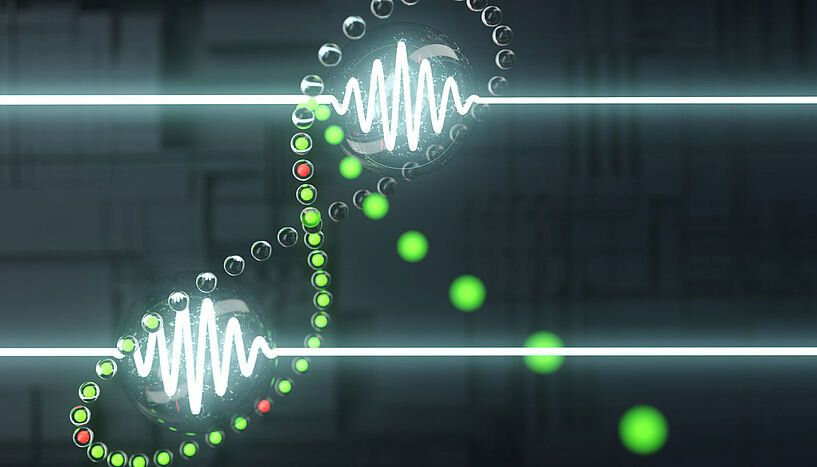One of the essential features required for the realization of a quantum computer is quantum entanglement. A team of physicists from the University of Vienna and the Austrian Academy of Sciences (ÖAW) introduces a novel technique to detect entanglement even in large-scale quantum systems with unprecedented efficiency. This brings scientists one step closer to the implementation of reliable quantum computation. The new results are of direct relevance for future generations of quantum devices and are published in the current issue of the journal Nature Physics.
Quantum computation has been drawing the attention of many scientists because of its potential to outperform the capabilities of standard computers for certain tasks. For the realization of a quantum computer, one of the most essential features is quantum entanglement. This describes an effect in which several quantum particles are interconnected in a complex way. If one of the entangled particles is influenced by an external measurement, the state of the other entangled particle changes as well, no matter how far apart they may be from one another. Many scientists are developing new techniques to verify the presence of this essential quantum feature in quantum systems. Efficient methods have been tested for systems containing only a few qubits, the basic units of quantum information. However, the physical implementation of a quantum computer would involve much larger quantum systems.









Comments are closed.